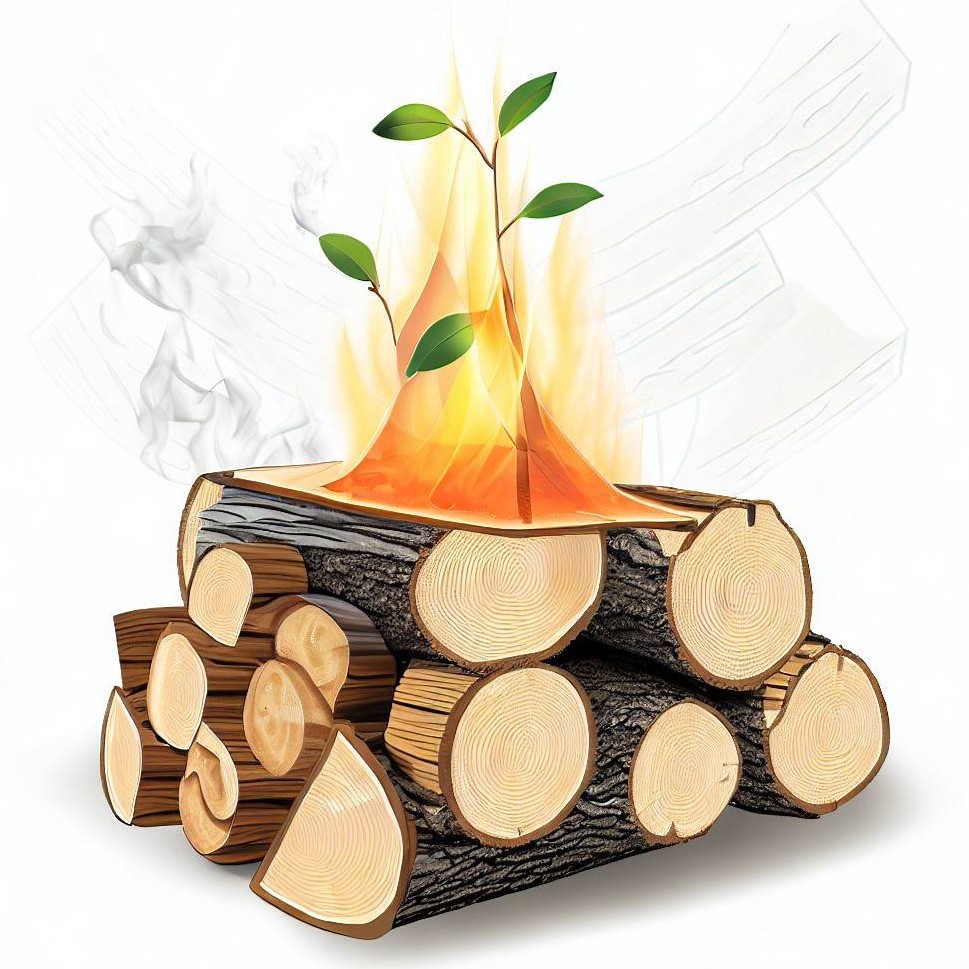Benefits of Heating with Wood
Wood: A Cozy, Sustainable Choice

In an era marked by technological advancements and the pursuit of sustainability, it might seem paradoxical to extol the virtues of a traditional method of heating like wood.
However, the practice of heating with wood has endured through the ages for a reason. From rustic fireplaces to modern wood-burning stoves, this natural heat source continues to offer numerous benefits that go beyond merely keeping us warm during chilly winter nights.
On this page, we’ll explore the advantages of heating with wood and shed light on why it remains a viable and attractive option in today’s world.
Renewable and Sustainable Energy:
One of the most compelling reasons to heat with wood is its renewability. Unlike fossil fuels such as coal and oil, which take millions of years to form and are finite in supply, wood is a renewable resource. Through responsible forestry practices, trees can be replanted and grown, ensuring a continuous supply of wood for heating purposes. This eco-friendly aspect has made wood heating a preferred choice for those concerned about their carbon footprint and the environmental impact of their heating choices.
Carbon-Neutral Heating:
When wood is burned, it releases carbon dioxide (CO2) into the atmosphere, but this is balanced by the CO2 that the tree absorbed during its growth. As a result, wood heating is considered carbon-neutral when managed sustainably. This is in contrast to fossil fuels, which release CO2 from ancient stores into the atmosphere, contributing to greenhouse gas emissions and climate change. By opting for wood heating, individuals can actively participate in mitigating their impact on the environment.
Energy Independence:
Wood is a locally available resource in many regions, which means that heating with wood can promote energy independence. Reliance on imported fuels can make communities vulnerable to price fluctuations and geopolitical tensions. Utilizing local wood resources for heating reduces dependency on foreign energy sources, fostering a more stable and self-sufficient energy system.
Cost-Effective Heating:
For those with access to a reliable supply of wood, heating costs can be significantly lower than using conventional fossil fuels or electricity. While the upfront cost of installing a wood-burning stove or fireplace may be a consideration, the savings in the long run can be substantial, particularly if homeowners have access to free or inexpensive wood.
Cozy and Comforting Ambiance:
There’s a unique and enchanting appeal to the warmth and glow of a wood fire. The crackling sound of burning wood, the mesmerizing dance of the flames, and the comforting aroma create a cozy ambiance that is hard to replicate with other heating methods. Wood heating adds an element of nostalgia and charm to any living space, making it an attractive choice for those seeking to create a welcoming home environment.
Reliability during Power Outages:
In regions prone to severe weather conditions and power outages, wood heating can be a lifesaver. When the electricity goes out, a wood stove or fireplace can keep your home warm and provide a cooking source. This reliability can be especially crucial in rural areas and during emergencies when access to other heating methods may be limited.
Community-Building:
Wood heating can foster a sense of community. Gathering and preparing firewood can be a shared task among neighbors, bringing people together and strengthening social bonds. In some areas, there are even wood-sharing programs, where surplus wood is donated to those in need, creating a supportive and caring community network.
In Conclusion
The benefits of heating with wood go beyond the practicality of staying warm. From its sustainability and carbon-neutral nature to the cozy ambiance and cost-effectiveness, wood heating stands as a viable and environmentally conscious choice
As we strive for a greener and more sustainable future, embracing time-tested practices like heating with wood can help us strike a harmonious balance between modern comfort and responsible living
